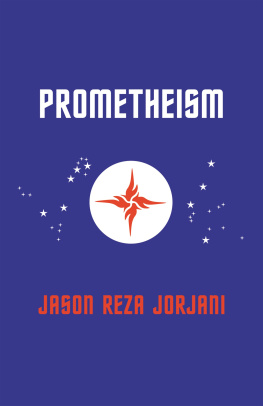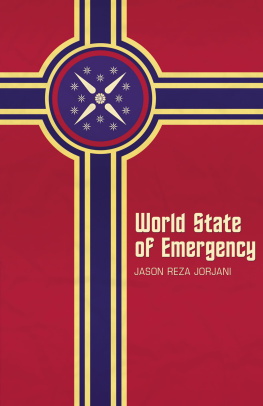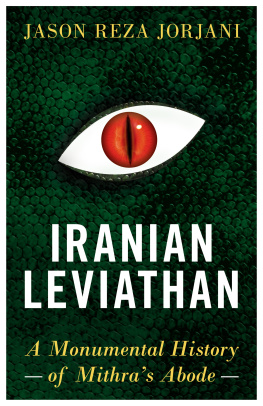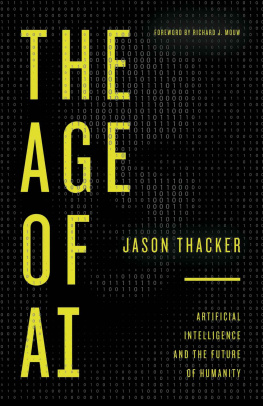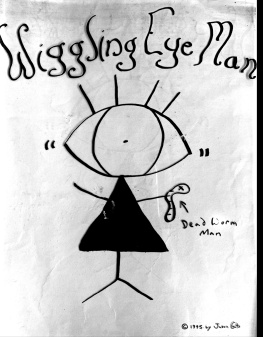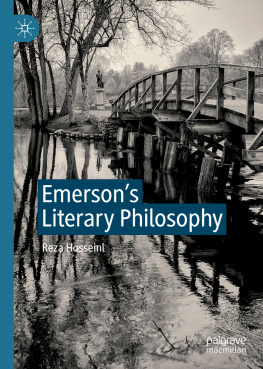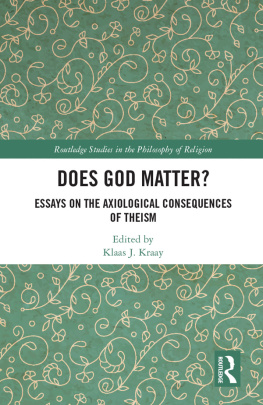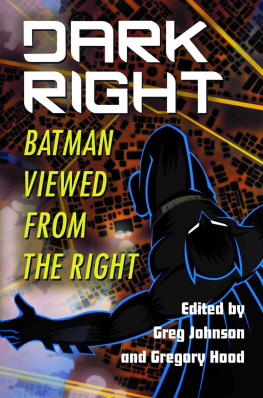
Arktos
London 2020

Copyright 2020 by Arktos Media Ltd.
All rights reserved. No part of this book may be reproduced or utilised in any form or by any means (whether electronic or mechanical), including photocopying, recording or by any information storage and retrieval system, without permission in writing from the publisher.
Arktos.com | Facebook | Twitter | Instagram | Gab.ai | Minds.com | YouTube
ISBN
978-1-912975-89-1 (Softcover)
978-1-912975-90-7 (Hardback)
978-1-912975-91-4 (Ebook)
Editing
John Bruce Leonard
Layout
Tor Westman
This book is dedicated to my fiance Nassim,
Who was drawn to me through the Promethean fire in her own soul.
Lets set this world ablaze together, beloved!
Prometheus, teacher in every art, brought the fire that hath proved for mortals a means to mighty ends.
Aeschylus
Introduction
T his is a declaration of war. In the name of our creator, we declare a revolutionary war against both the gods and those titans who were gods before them! In the name of our liberator, we declare a revolutionary war against fatalism and every other form of tyranny! We think from out of the end of all things, with an indomitable will to achieve either victory or a martyrdom that inspires enduring rebellion in those to whom we pass the torch of our example.
Of all the ancient myths that still have vital force, that of Prometheus is set apart as the most powerful because it is also the most ominous. In a world where the majority of people have been brainwashed into believing that their creator is a jealous and tyrannically wrathful God-Father, archetypally identical to Zeus, the myth of Prometheus as the creator of Man is a meteor that threatens an entire Cosmos with the spectre of deranging its constellations of belief.
That Prometheus bestowed a soul on the human being in the form of a butterfly already suggests that he is not only the creator, but also the liberator of Man. When Zeus punishes Prometheus for attempting to secure his creation a life beyond sacrificial servitude, the rebel titan takes his revenge against the God-Father by gifting mortals with the fire of the forge and the light of knowledge. The fire that he steals from Olympus in the fennel stalk is emblematic of the power of technological science to free us from imposed scarcity and enforced ignorance.
We see the most defining characteristics of Prometheus reflected in the kind of projection that is involved in the framing of Nature by every scientific theory, and the provision for the future that is made possible by technological innovations that are developed on the basis of these theoretical models. The very name of Prometheus is derived from the Greek words for forethought and prevision. This archetypal creator and liberator of Man epitomizes the intrepid spirit of thinking ahead by envisioning futures and preparing provisions with a view to making sure that the best possible future unfolds. That he is punished by having his ever-regenerating liver perpetually pecked at, suggests that even the God-Father wants to know the things to come as clearly as Prometheus sees them: the archaic Greeks used the liver for foretelling the future.
Prometheus is the first freedom fighter. The archetype of Prometheus tacitly reflects a recognition that freedom is the most fundamental fact in the Cosmos. The Cosmos is inconceivable without consciousness, which presupposes intentionality. Some degree of free will, however conditioned, is a prerequisite of anyone being personally accountable for meaningful actions. A Cosmos in which our creative acts do not add anything that was not predetermined, and that could not have been foreseen or anticipatedeven by the Providence of a deityis a world that is not worth living in.
Prometheus is, of course, also the deity who most fully epitomizes foresight. His name means to think ahead and when Zeus chains him to a rock in the Caucasus, the eagle pecking out his liver is a symbolic expression of Zeus seeking to devour and appropriate the superior power of precognition, projection, and anticipation that is characteristic of Prometheus. However, the purpose of this definitively Promethean power is to expand our scope of free will and self-determination, not to constrain it with a sense of inexorable fate. Foreseeing possible futureswhether by the intuitive means of precognitive clairvoyance or through rational projective analysis, or a balance of bothactually affords us the opportunity to become the masters of our own destiny.
Various factors do condition thought, constrain the will, and limit the imagination, but the capacity to exercise individual freedom at some level despite these factors is a sine qua non of any meaningful conception of existence. Only a discontinuous and somewhat internally dissonant cosmic structure, which always preserves a degree of chaos, allows for this kind of creative individuality. Understanding such a structure precludes, and is mutually exclusive of a putatively scientific commitment to mechanistic reductionism, religious faith in an omniscient and omnipotent God, and the belief that there should or ever can be an end to violent struggle and strife. Any entity falsely claiming omniscience and omnipotence, so as to demoralize people by subjecting them to the illusion of the futility of resistance, is simply Zeus by another name.
Prometheus redefines the preconceived limits of the possible, making the putatively impossible possible by means of technological science. The Prometheist has the strength to grasp the burdensome fact that the truth is what works. Knowledge is not the mirroring of an objective Reality by a subjective cognition that only needs to be rendered more perceptive and precise, like a mirror that requires polishing. Knowledge is radically pragmatic, because technology is ontologically prior to sciencewhich is inseparable from the technology that makes theoretical research possible and renders knowledge discoverable. Rather than distinguishing Science from Technology, and misconstruing technology as applied science, we should always conceive of them as the unified phenomenon of Technoscience, wherein theoria is inconceivable apart from praxis .
Scientific knowledge is the white light of molten metal in the forge of industrious innovation. Science ought not to be confined within any particular paradigm, which also constrains technological innovation. Instead, various paradigms, and the theories that they make possible, ought to be seen as different scientific models that each offer us the potential to craft certain types of technological tools for handling things better and, ultimately, for expanding the horizon of our achievable aims. Multiple and mutually inconsistent paradigms can be exploited simultaneously for the sake of their power to foster discovery and act as a framework for invention.
As the deity whose mind races ahead to survey the most distant horizons of possible futures, Prometheus also offers us inspiration as a sacred fountainhead of creativity. The inspirational power of beauty is an expression of the evolutionary force. A seduction to surmounting perceived limitations is what ought to resonate within oneself in the face of the harmonic proportionality or dynamic tension of an aesthetic work, whether in literature, painting, architecture, music, or performance art. Aesthetic experience should be an encounter with an expression of ascendant life, not for the sake of inspiring an awe that suffocates and dwarfs the soul, but with a view to kindling personal genius. Inspiration always involves a feedback loop with possible futures, so that the creativity it affords us can generate forms and architectonics that are never merely a repetition of the past. This also means that, however archaic certain elements of an aesthetic work may be, an orientation towards the future is necessary for it to be rightly deemed beautiful, rather than awe-fully monstrous in its titanic brutality.
Next page
